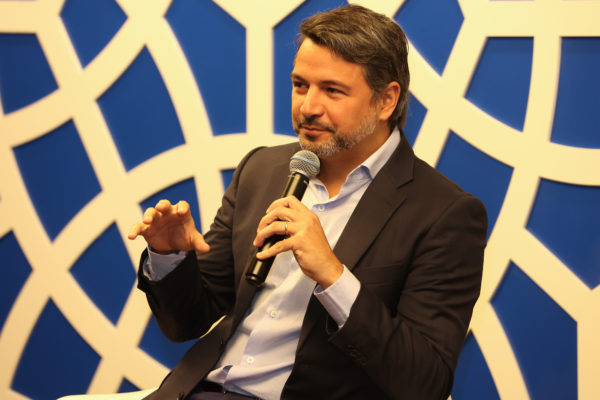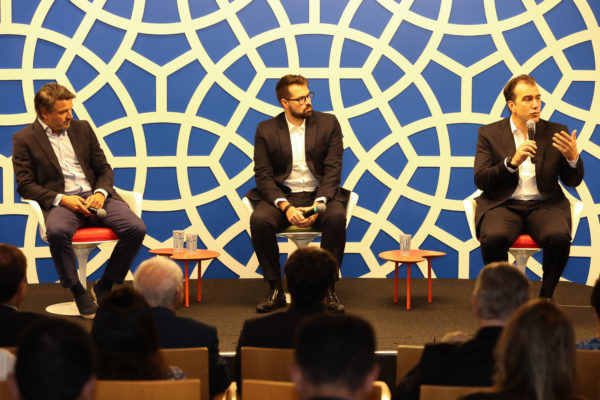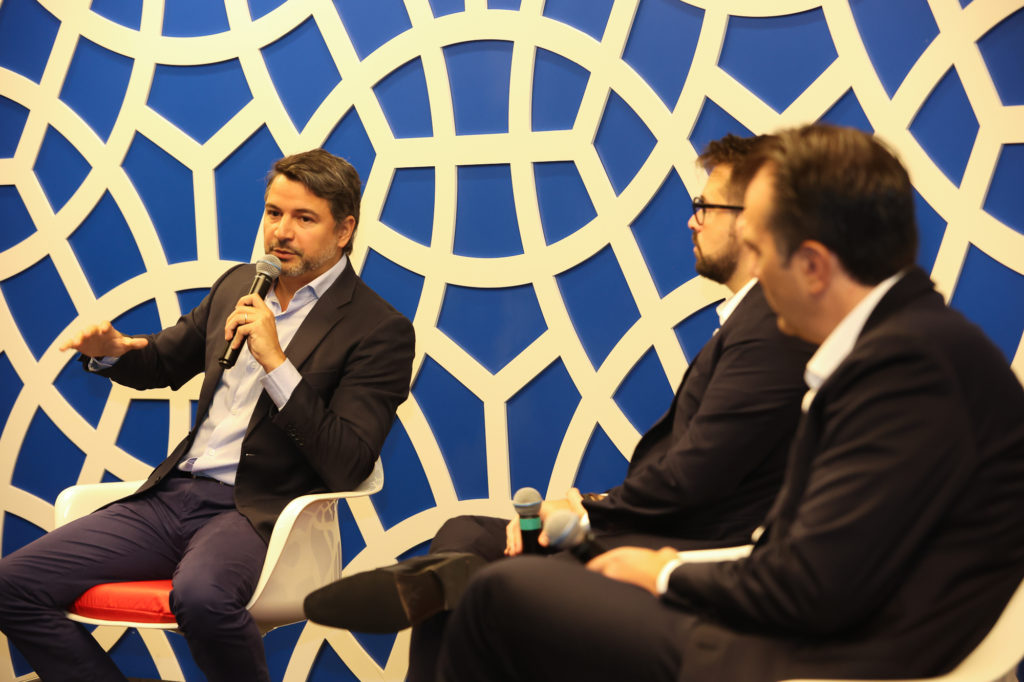São Paulo – Brazilian investment bank BTG Pactual set up an office in Riyadh, the capital of Saudi Arabia. The biggest investment bank in Latin America is the only one from Brazil with a presence in the largest Arab country in the Gulf region. It serves the six countries of the Gulf Cooperation Council (GCC); Saudi Arabia, the United Arab Emirates, Qatar, Oman, Kuwait, and Bahrain.
BTG Pactual partner and head of BTG Middle East, Mario Cavalieri, spoke about the bank’s activities in the region in a seminar at the Arab Brazilian Chamber of Commerce (ABCC) headquarters this Tuesday (28). “We set up an office in Riyadh to raise capital from [Saudi] Arabia and other GCC countries for investments in Latin America and attract Latin American investment to the Middle East,” said Cavalieri.
In addition, the bank carries out mergers and acquisitions in the region. The sectors attracting interest to Arab companies seeking to buy companies in Brazil and Latin America are animal protein, infrastructure, aviation, and hospitality, informed Cavalieri. On the other hand, the Arabs have sizeable operations in the energy sector, both in oil and gas and in renewable energies.

“I’m there [in Riyadh] every two months, and anyone who wants to explore this trade flow can perform very well. We have been pioneers and today the main business bridge between Saudi Arabia and Brazil, as stated by the Saudi government,” declared the executive.
The idea of BTG having a presence in the Middle East was conceived about six years ago when representatives made their first forays into the Arab world and identified Saudi Arabia as a flourishing prospect.
“At the time, the Crown Prince, Mohammed bin Salman, took over as ruler and began opening up the country to trade and attracting investment. We saw Brazil was looking at the Middle East only from the perspective of Dubai. Basically, no one in the financial world had any relationship with Saudi Arabia or other countries,” he said.
They then attended the “Davos in the Desert” or “Future Investment Initiative,” a conference held in Saudi Arabia. “Our chairman was invited to be one of the speakers at this event, and we identified opportunities,” he said.
The six GCC countries add up to around 60 million people with a Gross Domestic Product (GDP) of USD 2 trillion. “It is a gigantic GDP per capita; much comes from oil and gas,” he said. He said a good part of the income from this production has always been invested outside the country. “They couldn’t reinvest their capital in their own currencies. Historically, the United States and Europe were the main destinations of this capital, and now, they are increasingly affluent and seeking new frontiers. Brazil has become one of these new frontiers,” he declared.
Cavalieri reported he managed to attract resources from some of the region’s sovereign wealth and pension funds. “They are already investing with us in Brazil through BTG, and they have a different characteristic; it is a very concentrated region. Twenty investors hold USD 4 trillion. You don’t even see that in the USA; it’s an excessive concentration of capital you don’t see anywhere else in the world, seeking new frontiers at a very favorable moment,” he said.

BTG benefits from being the only Brazilian bank with an office in Riyadh. “We are well positioned, the only Brazilian bank there, and we look very favorably on this foray BTG is making. We are still exploring this region on our own. Still, we also had a lot of support from the Saudi government and other governments in the region, like Qatar, the UAE, Oman, and Bahrain, all wanting to attract more and more investment from Latin America and stimulate trade,” he declared.
Trade flows between Brazil and Saudi Arabia have been increasing, as has Saudi interest in investing in Brazil. “This year, we expect to receive a large Saudi delegation with businesspeople, the country’s investment minister, and a relevant team to explore business with Brazil, and the sky is the limit,” said Cavalieri.
To the executive, the move Saudi Arabia is making today is what Dubai and the UAE did 20 years ago. “And Dubai became the most prominent tourist destination in the world last year. Now Saudi Arabia, a richer, larger, and geopolitically more powerful country, wants to do the same and has all the conditions to succeed,” he concluded.
BTG Pactual Advisors co-head and BTG Pactual partner Guilherme Pini, and BTG Pactual economist Álvaro Frasson also attended the lecture. They discussed Brazil’s macroeconomic scenario for investments. The executives detailed the economic challenges Brazil is currently facing, such as high interest rates and the influences the country is suffering from global events. The executives emphasized the fiscal framework and the federal government’s plan to replace its spending ceiling, which generates anxiety in the financial market. BTG Pactual forecasts a 1.1% growth for Brazil’s GDP in 2023.
The event was opened by the vice president of International Relations of the ABCC, Mohamad Mourad. The New Business director, Guilherme Fedozzi, presented the services offered by the institution to bring Brazilian and Arab companies closer together and help them do business.
Translated by Elúsio Brasileiro




